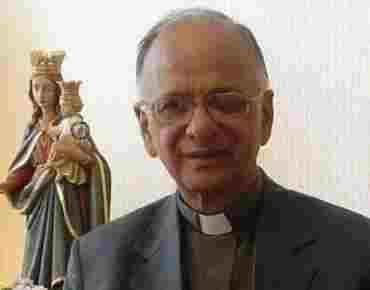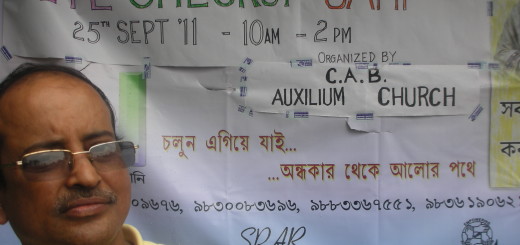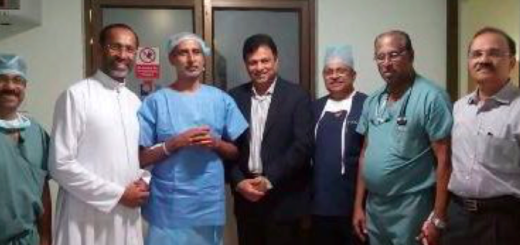Archbishop Menamparampil to address Cebu International Eucharistic Congress

Guwahati (Story by Matters India): Archbishop Thomas Menamparampil, the Apostolic Administrator of Jowai, will be one of the speakers at the International Eucharistic Congress at Cebu, Philippines, to be held during the last week of January.
When congratulated on this responsibility, the Archbishop said, it surprised him a great deal that the organizers of a mighty event sought out someone in the interior hills of Meghalaya to address the international audience.
It will truly be a voice from the ‘periphery’.
Asked about the topic that he will be dealing with, he said he had been given the theme “The Eucharist is Mission, and Mission is Dialogue.”
“The first part is evident” he said, “The Eucharist is announcement, there is no doubt. And it provides energies for the most challenging missionary endeavours. But when we come to the second part, some questions may be raised.”
This happens, Archbishop Thomas said, because many have an understanding of Dialogue merely as an academic exercise. Others understand it as negotiations between the representatives of two interest groups. Others again link it with diplomacy and ‘realpolitik.’
“Dialogue, on the contrary, is mutual education,” he argued, “It is an eagerness to learn and readiness to share. A message passed on in the context of a dialogue convinces best. Socrates drew a large number of followers with this approach: asking and answering questions, inviting people to think, reaching unexpected conclusions. In our civilization Buddha did the same.
Jesus took this method to new heights. Many of the discussions he had are put in the form of arguments and debates by the sacred writers, reflecting the tense situations in which the early Christians lived. But they were in reality lively dialogues in which the participants took enormous interest.
“Dialogues become exciting,” said Archbishop Menamparampil, “when they are life-related, e.g., how to confront contemporary problems together, poverty, violence, corruption, damage to environment.”
Dialogue today is about responding to the cry of the poor, as Pope Francis says. It is responding to the cry of Jesus on the cross. It is about showing concern for damaged environment. It is about healing memories of historic wounds. It is about interpreting the cultural/civilizational genius of peoples. It is about searching the collective unconscious of entire societies to discuss deeper issues.
“Dialogue does not exclude inviting a secularized society to a better self-understanding and self-criticism.” the Archbishop insists, “It does not exclude making humble proposals about a common way forward to ultimate human destiny.”
“There may be a moment,” affirms Archbishop Menamparampil, “when people ask questions about Latens Deitas, Deus Absconditus, the Hidden God, hidden in the Eucharist, silent in the Scriptures until explained. There may be a moment to whisper an answer to a secret searcher.”
Asked whether he would speak about his missionary experiences, he said that silent adoration summarizes much of what he wants to say.
















